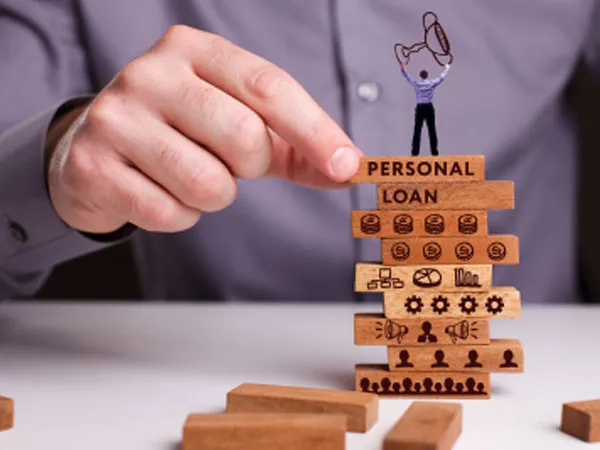A personal loan is a flexible type of loan that can be utilised for any reason without any security or collateral. For example, it might cover wedding expenses, kid tuition fees, or unexpected medical costs. The approval and disbursal time is less for such loans, and personal loan rates are also higher. While a good credit score is significant to avail personal loan, NBFCs consider other factors before approving your loan.
Reasons for rejection of your personal loan despite a good credit score
If a person with good credit has their loan application denied, there are many factors why this happens. Financial institutions take into account the following factors:
1. Your debt is too high
NBFCs would not approve your loan if you took out too many loans in the preceding year, regardless of whether you could repay them.
NBFCs may believe that even though you have a decent credit score and have been paying your EMIs and credit card payments, you have too much debt and may not have enough income to repay your loans in the event of an emergency or cash constraint.
2. Career or income instability
Your loan amount won’t be accepted if your salary doesn’t meet the income requirements. Additionally, the debt-to-income ratio should meet the requirements of the lender. Your loan will only be granted after that. Moreover, relocating for employment or changing jobs too frequently can negatively affect your credit score and slow down the loan approval process.
3. No recent update on your credit report.
Although it may not yet be reflected in your credit report, you may not use some of your credit cards or even pay off a sizable loan that you had previously taken.
The frequency of your creditor’s reports to the credit agencies will determine this. The lender may decline your application if your credit report has not been updated at the time of submission.
4. Irregular and poor tax-paying history
Tax-paying history is another factor that leads to the denial of a loan application. Applications from people who have actively filed income taxes for at least two years before the application are typically preferred by banks.
Since these people already have a credit history independent of CIBIL, it is simpler to assess their creditworthiness. A person is more likely to have their loan application denied if they haven’t filed their income tax returns on time in the previous two years.
5. Secured loans and unsecured loans
Home loans, car loans, and other secured loans require collateral, while unsecured loans do not. A ratio with more secured loans than unsecured loans is considered good and will allow you to enjoy decent personal loan rates.
Lenders will view you as a borrower with credit-based debt if you cannot keep a balance between secured and unsecured loans, which could lead to the rejection of your loan application.
6. Defaulter information matching
Financial institutions keep lists of people who have missed payments, including their name, age, address, place of employment, and other information. So even if the payment default occurred long ago and you have since built a strong track record, some lenders might not approve your application if you have any defaults in payments.
7. Not enough work experience
You might not have enough professional experience. Some lenders won’t approve your application if you are trying to obtain a personal loan and have just started your employment. This is because lenders prefer to approve loan requests from borrowers who have held their current position for at least three months and, in certain cases, six months. If you are considering taking a personal loan after beginning new employment, wait until you have worked at your present job for at least three months.
8. Applying for too many loans in a short period
Even with a high credit score, borrowing frequently can lead to loan denial. Financial institutions start to question your ability to make repayments.
Even if you pay back several loan EMIs on time, lenders will still question your dependence since they think it will put too much pressure on you and result in delayed repayment.
Conclusion
Lending institutions consider several factors before giving a personal loan. So, you might be unable to avail of a personal loan even if you have a good CIBIL score.
